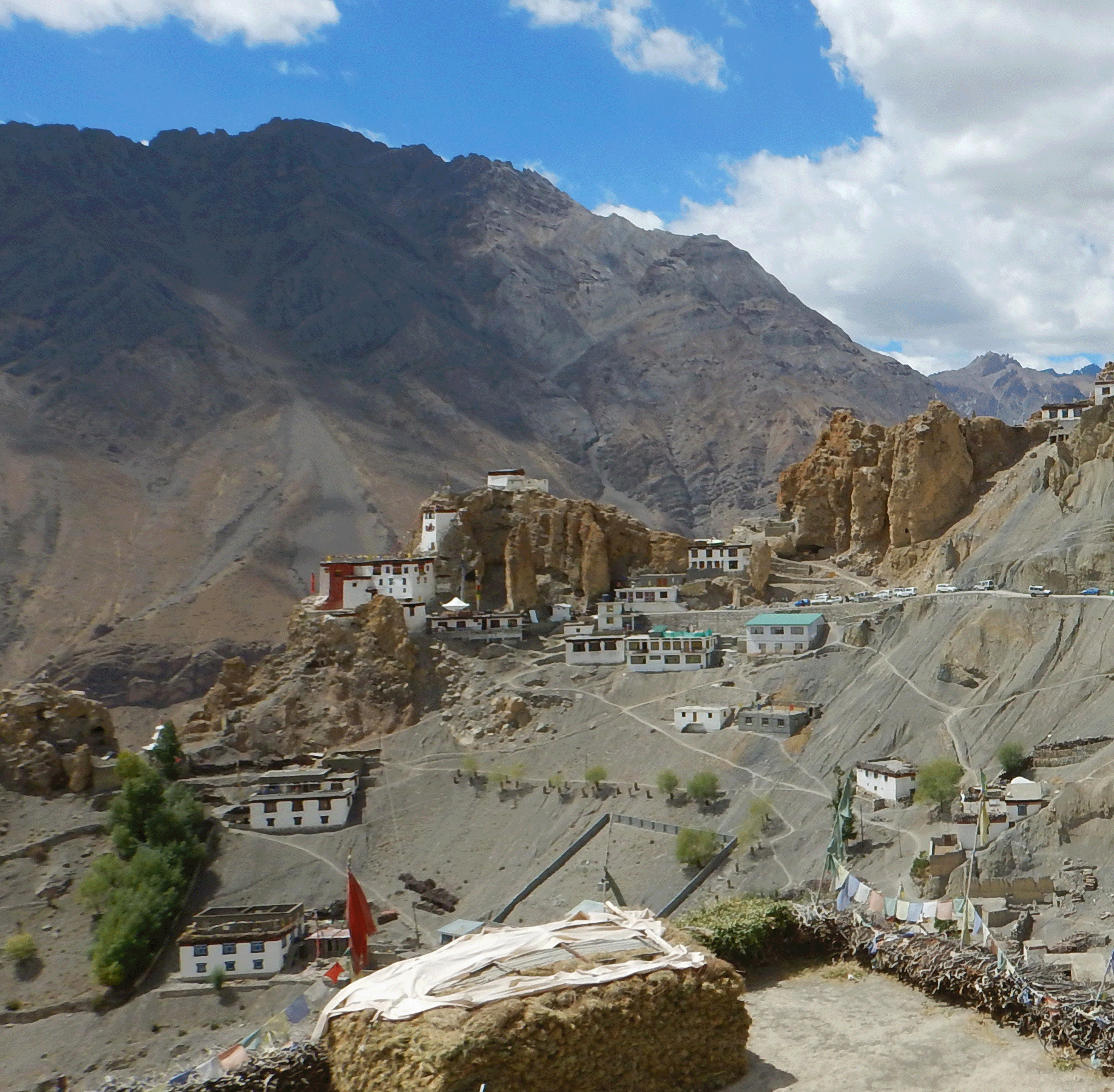Overland traveling, particularly on a motorcycle, offers a unique and enriching experience that contrasts starkly with air travel. Unlike the swift and detached nature of flying from one major city airport to another, overland journeys provide a gradual immersion into the diverse tapestry of cultures, people, and languages.
Riding through landscapes, one can witness the subtle shifts in scenery and lifestyle, each mile offering a new chapter in the journey. From the bustling markets of one town to the tranquil villages of the next, travelers on two wheels have the opportunity to engage intimately with the places they pass through, forging connections with locals and gaining insights into their way of life.

The Continuum of Culture
These gradual transition fosters a deeper understanding and appreciation of the cultural nuances that make each destination unique. Although each place holds its own distinct identity, there are gradual differences and transitional similarities that connect them, not only in appearance but also in the interpretation of culture, food, and faith. These subtle yet profound shifts enrich the travel experience, offering insights into the local identities that air travel simply cannot replicate. As you move from one destination to another, you witness a seamless blend of cultures, creating a tapestry of experiences that deepen your appreciation for the diversity and interconnectedness of the world.
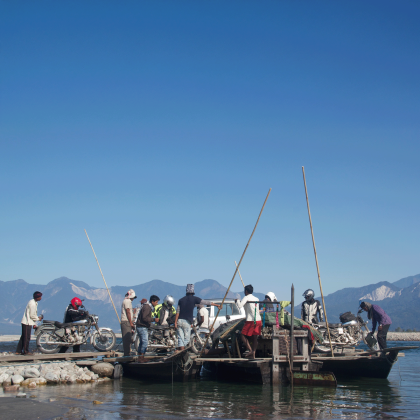
Spirituality in Motion
During the course of these riding trips, I found myself immersed in a rich array of traditions. From bustling city streets to serene countryside vistas, each corner of the map revealed different expressions of the sane belief, steeped in tradition and shaped by history. As I observed the rituals and practices of different cultures, I couldn’t help but question my own beliefs and the foundations upon which they rested. The juxtaposition of varying interpretations of similar faiths sparked a profound curiosity within me, leading to a deeper exploration of the common threads that bind humanity’s spiritual journey. It was through this journey that I came to realise the relative nature of faith – the fluidity of belief and the awakening that comes from embracing its diverse manifestations.
Traveling on a motorcycle offers a unique lens through which to understand faith. Just as regional cultures shape distinct traditions, so too do they influence beliefs and practices. Riding through various landscapes and communities, I observed how faith is not a monolithic entity but a living, breathing phenomenon that evolves with its environment. Each region, with its unique culture and history, contributes to the tapestry of belief, resulting in diverse expressions of spirituality. This journey on two wheels underscored the idea that there isn’t a singular, universal way to experience faith. Instead, it is shaped by myriad local influences, each adding its own flavor to the broader understanding of spirituality. Through these travels, I came to appreciate the richness and complexity of faith as it intertwines with the cultural fabric of each place I visited, challenging my preconceptions and broadening my perspective on the multifaceted nature of belief.
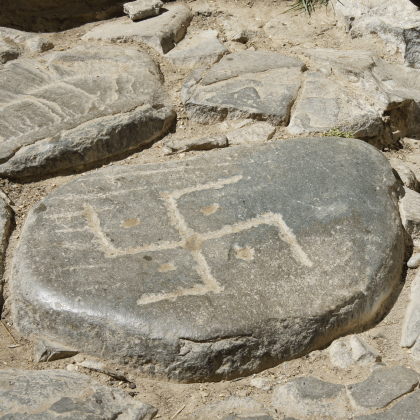
Breaking the Narrative
Mass media has often been exploited by political and religious power mongers to shape and influence perceptions of belief. These entities wield the power of media to propagate their agendas, manipulating narratives to serve their interests. As a result, outsiders frequently receive a distorted image of local cultures and communities, leading to misconceptions and prejudices. This manipulation not only tarnishes the reputation of these regions but also inflicts economic harm on the very people who are misrepresented. Tourism and local businesses suffer as travelers, influenced by negative portrayals, avoid these areas. Meanwhile, the locals, who are often the true bearers of rich cultural traditions and hospitality, bear the brunt of these misguided perceptions. The irony is that the communities most affected by this negative propaganda are usually the most welcoming and diverse, offering unique and enriching experiences that are overshadowed by the false images projected by those in power.
Overland travel offers a rare chance to engage deeply with the local culture and community, providing a genuine sense of the region’s character. As you journey across diverse landscapes, you experience firsthand the warmth and hospitality of the people you meet. Unexpected incidents, such as a mechanical issue or getting lost, can lead to meaningful interactions with locals who offer assistance and share their stories. These moments of unplanned engagement not only help you navigate your way but also challenge and often shift any preconceived notions you may have had. By connecting with people directly, you gain a more nuanced and positive perspective of the local culture, breaking down barriers and moving beyond the often skewed portrayals found in mass media.
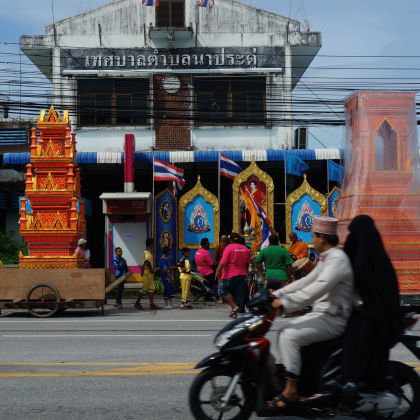
Faith is Not a Fixed Idea
As I journeyed overland, encountering diverse cultures and traditions firsthand, I found myself reevaluating my own perceptions of belief systems. This immersive experience illuminated how beliefs are not monolithic but rather dynamic and multifaceted, shaped by a complex interplay of historical, cultural, and regional influences. The deeper I delved into the local practices and interpretations, the more I realized that what I once thought to be a singular and uniform belief system is, in reality, a rich tapestry of varied manifestations. Each region’s unique expression of faith revealed how beliefs evolve and adapt over time, influenced by local customs and historical contexts. This revelation challenged my previously held notions and underscored the importance of understanding belief as a fluid and diverse phenomenon, rather than a static and singular entity. The journey prompted a profound reflection on how our perceptions are often shaped by limited or biased portrayals, and how embracing the complexity of belief systems can lead to a more nuanced and respectful understanding of the world’s spiritual and cultural landscapes.
These beliefs and cultures, passed down through generations, were formed during times when transportation and migration were limited, leading to isolated development of customs and traditions. In those eras, communities were more insular, and their beliefs were closely tied to their immediate environments and experiences. However, with the advancement of transportation and the proliferation of media, our human network has expanded dramatically. This connectivity has brought the power to influence and shape perceptions on a mass scale. Today, the narrative of cultural and religious practices can be molded to fit a unified, often sanitized version of the truth. This dominant narrative, selectively taught, tends to emphasize certain aspects while omitting or erasing practices deemed undesirable or outdated. As a result, the rich diversity and complexity of belief systems risk being oversimplified or forgotten. This modern phenomenon highlights the importance of critical engagement with the past and a conscious effort to preserve and respect the multifaceted nature of our cultural and religious heritage.
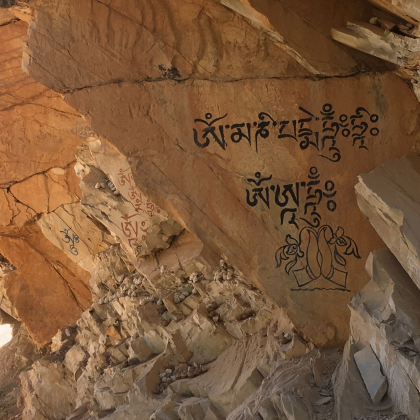
The Road Teaches
In recognizing the impact of modern connectivity on our understanding of traditions, it’s crucial to approach these influences with a critical eye. Overland travel offers a unique opportunity to witness firsthand the authentic expressions of culture and belief that may not fit neatly into the homogenized versions presented by mass media. As travelers, we have the responsibility to listen, learn, and document these diverse narratives. By doing so, we not only preserve the rich tapestry of human experience but also challenge the oversimplified perceptions that often dominate public discourse. This deeper engagement fosters mutual respect and understanding, breaking down the barriers that have been constructed by selective storytelling found in travel brochures, mass media, and social media. By experiencing the authenticity of local cultures firsthand, we challenge these curated narratives and gain a more nuanced appreciation of the world’s spiritual and cultural landscapes.
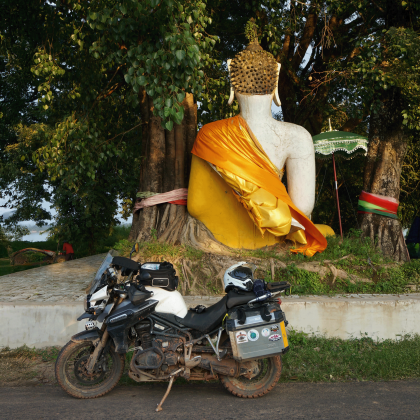
FINAL THOUGHTS
What starts as a motorcycle trip becomes something more profound – a confrontation with bias, a reckoning with belief, and a celebration of difference.
The road doesn’t just show you the world. It shows you yourself – reshaped, re-questioned, and more awake.
